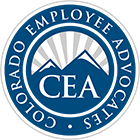The outcome of many employee lawsuits hinges on the question of why the employer took the action they did.
Generally, Colorado employers can legally hire or fire employees for any reason, so long as they aren’t breaking any state or federal law in the process. Theoretically, it’s legal for an employer to decide not to hire a worker because they didn’t like the shirt the worker wore to a job interview. But if you took the same employer and the same worker and proved that the employer didn’t hire the worker because of their race, sex, religion or other protected characteristic, then you have strong evidence that the employer violated laws against discrimination.
The problem for workers in these cases is that they have to provide evidence of what the employer was thinking.
University of Colorado lawsuit
A currently ongoing case helps illustrate the issue.
The case involves a former employee of the University of Colorado who worked in the institution’s catering and baking department. University officials said the man was rude and even abusive toward his coworkers and others throughout his employment. In 2018, the university fired him after he allegedly lashed out in an angry outburst that officials described as the last straw.
The worker claims that he was fired because he was a whistleblower and has filed suit, citing laws that protect whistleblowers.
The man claims that shortly before he was fired, he filed a report that one of his supervisors had improperly used university catering services for private events. University employees are protected by law from retaliation for reporting wrongdoing by university officials.
In 2021, a judge dismissed the man’s claim on summary judgment. The judge found that any reasonable jury would find that the university fired the man because of his behavioral problems, and not because of the whistleblower report.
The worker appealed the decision, and the Colorado Court of Appeals ruled that the lower court was mistaken. According to the appeals court, there is sufficient evidence to support the argument that the university fired the man because of his whistleblowing report. The case will now go back to the trial court.
Gathering evidence
As you can see from the University of Colorado case, it isn’t always easy to prove that an employer took a negative action against a worker because of a prohibited reason, and not because of a perfectly valid reason. Experienced attorneys help workers gather the evidence that will make their arguments stronger.

